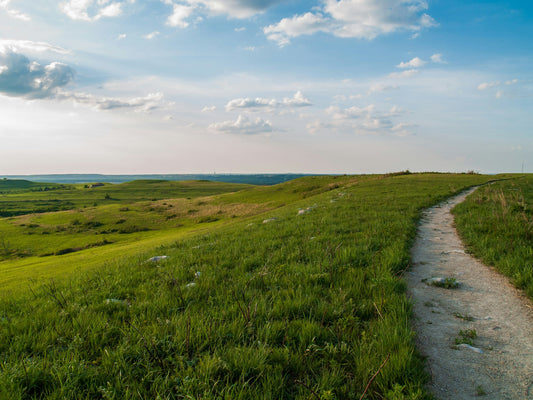Delta 9 vs CBD for Anxiety
As cannabis consumption has continued to become acceptable across the U.S., there is an increased interest in its potential to address certain health issues. There is particularly great interest in the efficacy of certain cannabinoids in anxiety management. This article will explore the potentials and limitations of Delta 9 vs CBD for anxiety.
Delta 9 vs CBD: Characteristics, Mechanisms, and Uses
Delta 9 and CBD are two of the most common compounds in cannabis plants. However, each has distinct characteristics and uses.
Delta 9
Delta 9-tetrahydrocannabinol, popularly known as Delta-9-THC, is the most well-known cannabinoid in cannabis plants. It has psychoactive properties that cause a euphoric head high.
Its chemical structure enables it to attach to cannabinoid receptors in the brain and throughout the body. It has a high binding affinity on CB1 receptors in the endocannabinoid system.
This results in various psychological and physiological effects. The extent of the effects varies from one person to another depending on factors such as dosage, concentration, and an individual’s tolerance, among others.
Delta 9 causes a release of certain neurotransmitters, such as dopamine and serotine, resulting in euphoria, relaxation, and altered mood. It also activates the brain’s reward pathway generating pleasurable sensations.
Delta-9-THC is believed to have potential benefits in pain management, anxiety management, nausea and vomiting relief, appetite stimulation, glaucoma management, and relaxation.
CBD
On the other hand, CBD (cannabidiol) is a non-psychoactive cannabinoid. Unlike Delta 9, it does not produce a euphoric, altered state. It does not directly bind to the CB1 and CB2 receptors in the body. Instead, it modulates their activity resulting in certain physiological effects. It also affects other functions in the body and brain.
For example, it interacts with serotonin receptors leading to potential antidepressant and anxiolytic effects. It can also activate TRPV1 receptors associated with pain perception, inflammation, and body temperature regulation. CBD also enhances the activity of gamma-aminobutyric acid (GABA), a neurotransmitter that promotes relaxation and reduces anxiety.
CBD has potential benefits for pain management, epilepsy treatment, anxiety and stress relief, sleep improvement, neuroprotective effects, substance abuse, and addiction management.
Delta 9 for Anxiety
The psychoactive properties of Delta 9 have positive and negative effects on anxiety management. Let’s look at the potential benefits and risks of using Delta 9 for anxiety management.
Benefits of Delta 9 for Anxiety
As mentioned earlier, one of the effects of Delta 9 is that it causes euphoria and relaxation, making you feel calm and at ease. The altered perception can be a welcome shift of your attention away from anxious thoughts.
Furthermore, Delta 9 causes heightened awareness putting you in a mindful state. If you are in a social setting, Delta 9 can help to ease your social anxiety and improve communication.
Potential Risks of Delta 9 for Anxiety
The effects of Delta 9 on anxiety vary for different people. In some people, it can trigger anxiety or cause paranoia and panic. Higher doses of Delta 9 can especially cause anxiety and paranoia. There are concerns that Delta-9 can worsen certain pre-existing psychiatric conditions, such as schizophrenia.
Consistent intake of Delta 9 and high doses can lead to dependence causing withdrawal if discontinued. Withdrawal can exacerbate anxiety. Furthermore, prolonged use of Delta 9 can have long-term cognitive and psychological effects such as memory impairment and cognitive decline.
CBD for Anxiety
There is growing evidence suggesting that CBD has certain benefits for anxiety management.
Benefits of CBD for Anxiety
CBD modulates serotonin levels promoting calm and relaxation. It also influences the body’s stress response contributing to a more relaxed and less anxious state. It promotes neurogenesis — the growth of new neurons in the body.
Neurogenesis plays a crucial role in improving mood and reducing anxiety. Furthermore, the cannabinoid has a neuroprotective response, which helps to alleviate stress and mitigate the impact of chronic stress.
CBD improves sleep. Numerous studies link poor sleep to anxiety. Therefore, by improving sleep, CBD can reduce anxiety significantly. CBD also can potentially reduce social anxiety and improve interactions with other people.
Finally, CBD may help manage post-traumatic stress disorder (PTSD) symptoms such as nightmares and intrusive thoughts.
Potential Risks of CBD for Anxiety
There are minimal reported side effects of CBD for anxiety. Even when they come up, side effects tend to be mild. For example, dry mouth, drowsiness, and change in appetite. That said, tolerance may vary from person to person.
Tips to Use Delta 9 or CBD Safely for Anxiety Management
Below are tips for using Delta 9 safely for anxiety management.
Consult Your Doctor or Psychiatrist
It is important to consult your doctor or psychiatrist before using Delta 9 or CBD for anxiety. They will assess your condition and weigh the potential benefits against the risks of using cannabis products for managing anxiety.
Your doctor or psychiatrist will closely monitor how you respond to make crucial decisions about how long to use the cannabis products for and dosing. They may also recommend ways to mitigate potential risks and enhance potential benefits.
Start With Low Doses
Monitor your response and gradually increase the dose if need be.
Choose the Right Cannabis Strain
The CBD:THC ratio in the cannabis strain will influence whether the anxiety worsens or improves. The best strains for anxiety management have a higher CBD content and lower Delta 9 content. CBD will counter any potential anxiety-inducing effects of Delta 9.
Consider the Cannabinoid Profile of the Cannabis Product
Cannabis products often contain multiple types of cannabinoids. They may also contain terpenes. While some cannabinoids and terpenes cause a euphoric high, others cause body relaxation. The cannabinoid and terpene profiles should be well-balanced to offer optimal benefits for anxiety management.
Use in a Calm, Familiar Environment
A calming environment works together with cannabinoids to lower anxiety. Besides, you will be in a safe environment if it triggers the anxiety further. Therefore, avoid taking cannabis products for anxiety in unfamiliar or crowded areas.
Limit Caffeine and Stimulant Intake
On their own, they can trigger or exacerbate anxiety. Combined with Delta 9, it can have adverse effects such as overstimulation, paranoia, and panic attacks.
Maintain a Healthy Lifestyle
Anxiety management is multidimensional. It requires that you are intentional and consistent with healthy eating, exercising, and adequate hydration. Also, regularly engage in mindful practices such as breathing exercises, spending time in nature, and meditation.
Consider the Legality of Using Delta 9 in Your State
The legality of using Delta 9 or CBD varies by jurisdiction. Check your local laws and regulations on guidelines for using cannabis products for recreation and medicinal purposes.
Conclusion
CBD is more beneficial for anxiety than Delta 9. Unlike Delta 9, it does not cause a euphoric high that may be anxiety-triggering for some people. It also has minimal side effects; even when there, they are mild.
On the other hand, Delta 9 can benefit anxiety management when used sparingly. However, beware of potential side effects that may worsen anxiety. Combining CBD and Delta may be more effective for anxiety management than using each individual.
Ultimately, there is a need for more research to establish the efficacy and optimal dosing of CBD and Delta 9 for anxiety management.









